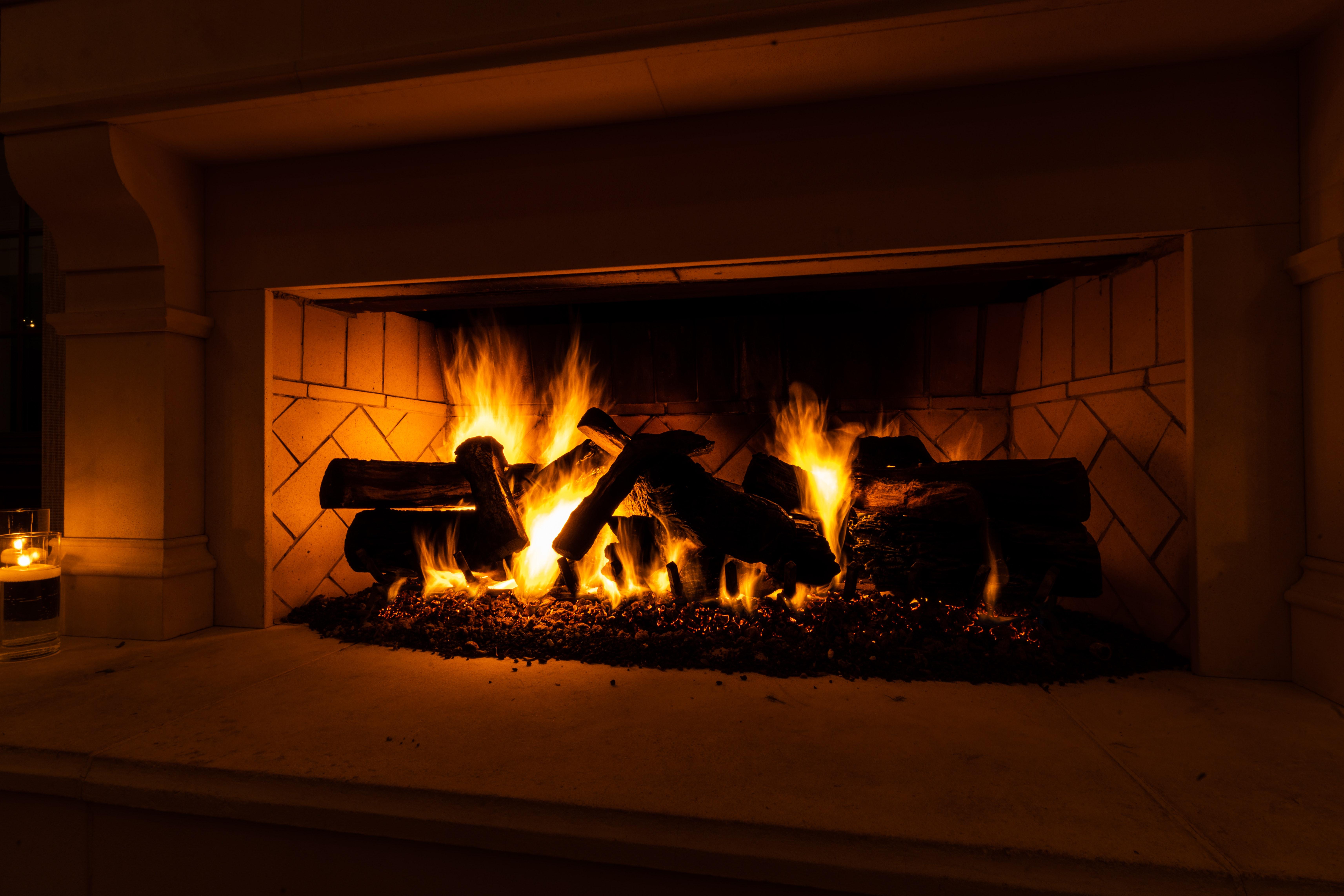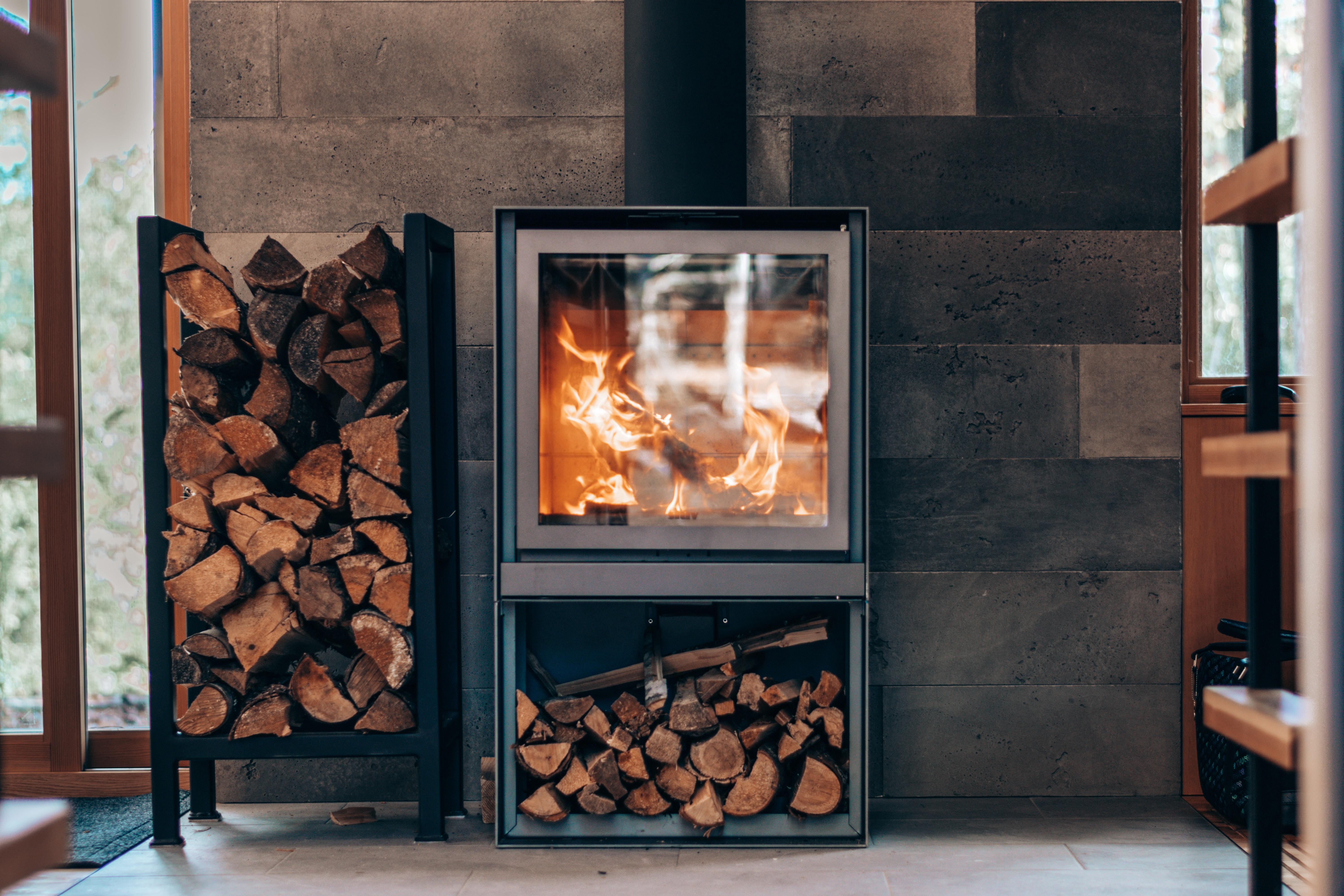Are you experiencing popping noises from your gas fireplace even after you’ve turned it off? You’re not alone! Gas fireplaces are designed to provide warmth and ambiance, but sometimes they can make unexpected noises that can be a cause for concern. In this blog post, we’ll explore some common questions and concerns about gas fireplace popping, including the causes, potential dangers, and how to address the issue.
Gas fireplaces are meant to provide a cozy and tranquil atmosphere, so when they start making popping or banging noises, it can be quite alarming. You may have questions like, “Are gas fireplaces supposed to make noise?” or “What causes sparks and explosions in a fire?” We will delve into these concerns and provide answers that will help you understand the reasons behind these unsettling sounds.
It’s important to prioritize safety when it comes to gas fireplaces, as they rely on flammable gases to produce heat. We’ll discuss the potential dangers of a gas fireplace and how to minimize the risks associated with them. Additionally, we’ll explore simple tips and tricks to help you eliminate wind noise and make your gas fireplace crackle in a safe and enjoyable way.
So, if you’re curious about why your gas fireplace makes popping noises or want to enhance your fireplace experience, keep reading. We’ll provide the information you need to ensure a cozy and peaceful ambiance in your home.
Gas Fireplace Pops When Turned Off
If your gas fireplace is popping when you turn it off, don’t worry, you’re not alone. This peculiar phenomenon might startle you at first, but fear not, for I’m here to shed some light on this puzzling issue. Here’s everything you need to know about why your gas fireplace pops when switched off.
Understanding the Pop
So, What’s with the Pop?
When you turn off your gas fireplace, you might hear a sudden pop, or perhaps multiple pops. It’s like a tiny firework show that only happens inside your fireplace. But what causes these mysterious pops?
1. Expanding Metal
As your gas fireplace heats up during use, the metal components expand. This expansion can be caused by various factors like temperature changes and extended usage. When you eventually turn off the fireplace, the metal contracts as it cools down. This contraction can create those “popping” sounds as the metal adjusts its shape.
2. Combustion Residue
Another possible culprit behind the popping sound is the leftover combustion residue. Over time, combustion byproducts like soot and creosote can accumulate within your gas fireplace. When the fireplace is turned off, the sudden temperature change can cause these residues to crackle, resulting in those intriguing pops.
Solutions to Silence the Pops
1. Regular Maintenance
To minimize the popping noises, it’s crucial to keep your gas fireplace properly maintained. Ensure you schedule regular inspections and cleanings to remove any residue buildup. By having a professional clean your fireplace, you can prevent the accumulation of combustion byproducts and reduce the chances of pops when you turn off the flames.
2. Temperature Gradual Reduction
One simple technique to minimize the pops is to gradually lower the temperature of your gas fireplace before turning it off completely. By decreasing the heat gradually, you allow the metal components to adjust more smoothly, reducing the intensity of the popping sounds.
3. Proper Ventilation
Ensuring proper ventilation is essential not only for the overall safety of your gas fireplace but also to reduce popping noises. A well-ventilated fireplace allows the combustion byproducts to escape efficiently, minimizing residue buildup and subsequently reducing the chance of pops when you shut it down.
So, the next time your gas fireplace pops when turned off, remember that it’s just the result of expanding and contracting metal or the crackling of combustion residue. By understanding the science behind these sounds and following some preventive measures, you can enjoy a peaceful, pop-free fireplace experience. Keep your fireplace well-maintained, gradually reduce the temperature before turning it off, and ensure proper ventilation – and those pesky pops will be a thing of the past!
FAQ: Gas Fireplace Pops When Turned Off
Gas fireplaces are a cozy addition to any home, providing warmth and ambience on chilly evenings. However, sometimes they can exhibit some strange behaviors. If you’ve noticed your gas fireplace making popping noises after being turned off, you might have a few questions. Don’t worry, we’ve got you covered! Here are the most frequently asked questions about gas fireplace pops and explosions.
Are Gas Fireplaces Supposed to Make Noise
Some noise is normal with gas fireplaces, such as the gentle hissing of the flames or the slight crackling of the logs. However, excessive noise could indicate an issue with your fireplace. Keep reading to learn more about the causes of fireplace explosions and popping sounds.
What Causes Fireplace Explosions
Fireplace explosions can be caused by a variety of factors, including a buildup of gas, improper ventilation, or a malfunctioning valve. If you suspect a fireplace explosion, it’s crucial to take immediate action. Contact a professional technician to inspect your fireplace and ensure its safety.
How Do I Stop Wind Noise in My Gas Fireplace
If your gas fireplace is making noise as a result of strong winds outside, there are a few steps you can take to mitigate the issue. Start by checking for any cracks or gaps in the fireplace and sealing them properly. Additionally, you can install a wind guard to minimize the wind’s impact on the flames, reducing noise in the process.
What Are Crackle Embers
Crackle embers are small ceramic pieces designed to enhance the realism of a gas fireplace. They mimic the crackling sound and appearance of burning wood, adding a touch of authenticity to your gas fireplace experience.
Does Gas Fireplace Crackle
While gas fireplaces don’t crackle naturally like wood-burning fireplaces, you can introduce crackle embers to achieve a similar effect. These embers create a delightful crackling sound, making your gas fireplace feel even more cozy and inviting.
Why Is My Fire Popping
A fire that pops can be caused by various factors, including moisture in the logs, poor combustion, or the presence of foreign objects. Consider using seasoned firewood to minimize moisture content and ensure proper combustion, reducing the likelihood of popping sounds.
What Causes Sparks in a Fire
Sparks in a fire can occur due to the combustion of volatile substances, such as pitch or sap found in certain wood types. These substances vaporize and ignite, creating tiny sparks that can occasionally escape the fireplace.
What Does Vermiculite Do in a Gas Fireplace
Vermiculite is a mineral often used in gas fireplaces as a lightweight, insulating material. It helps to distribute heat evenly and protect the fireplace components. Additionally, vermiculite can create the illusion of a bed of glowing embers, enhancing the visual appeal of your gas fireplace.
Should Pilot Light Stay On in Gas Fireplace
Unless you’re planning to go an extended period without using your gas fireplace, it’s generally recommended to keep the pilot light on. This helps ensure a quick and easy ignition when you want to start a fire.
Why Is My Fireplace Making Noise When Off
If your gas fireplace is making noise even when it’s turned off, there might be residual gas in the line that is causing the sound. It’s advisable to schedule an inspection with a professional to identify and rectify any potential issues.
Can a Gas Fireplace Cause an Explosion
While gas fireplaces are generally safe, they can potentially cause an explosion if certain safety precautions are not followed. Regular maintenance, proper ventilation, and professional installation are essential to mitigate any risks associated with gas fireplaces.
How Can I Make My Gas Fireplace Crackle
To achieve a crackling sound with your gas fireplace, you can consider adding crackle embers. These ceramic pieces create the delightful sound of crackling wood, enhancing the overall ambiance of your gas fireplace.
Why Does Sap Pop in a Fire
Sap, found in some wood species, contains volatile substances that vaporize and ignite when exposed to heat. This combustion process creates tiny explosions, resulting in the popping sounds you may hear from your gas fireplace.
What Are the Dangers of a Gas Fireplace
While gas fireplaces are generally safe, it’s important to be aware of the potential dangers. These include the risk of explosions, carbon monoxide leaks, and improper ventilation leading to poor indoor air quality. Regular maintenance and professional inspections can help mitigate these risks and ensure your safety.
Why Does My Gas Fireplace Make Popping Noises
Gas fireplaces may make popping noises due to a variety of reasons, including moisture in the logs, the presence of foreign objects, or the combustion of volatile substances within the logs or embers. If you’re concerned about the sounds your gas fireplace is making, it’s best to have it inspected by a professional technician.
Why Does My Gas Fireplace Make a Banging Noise When I Turn It Off
A banging noise when you turn off your gas fireplace could indicate the presence of excess gas in the line. This can happen due to a malfunctioning valve or improper shutdown procedures. It’s crucial to have a professional technician inspect your fireplace to prevent any potential safety hazards.
Why Does a Fire Crackle and Pop
In nature, crackling and popping sounds are characteristic of burning wood. As the heat reaches the moisture and volatile substances within the logs, they vaporize, causing small explosions and producing the beloved crackling and popping sounds we associate with a comforting fire.
How Long Do Gas Fireplace Embers Last
Gas fireplace embers can last for several years before needing replacement. However, their lifespan can vary depending on factors such as usage frequency and the quality of the embers themselves. It’s a good practice to inspect and replace embers if they become worn out or lose their effectiveness in enhancing the appearance of your gas fireplace.
We hope this comprehensive FAQ section has answered your burning questions about gas fireplace pops and explosions. Remember, if you ever have any concerns about the safety or functionality of your gas fireplace, it’s always best to consult a professional technician. Stay warm and cozy!

